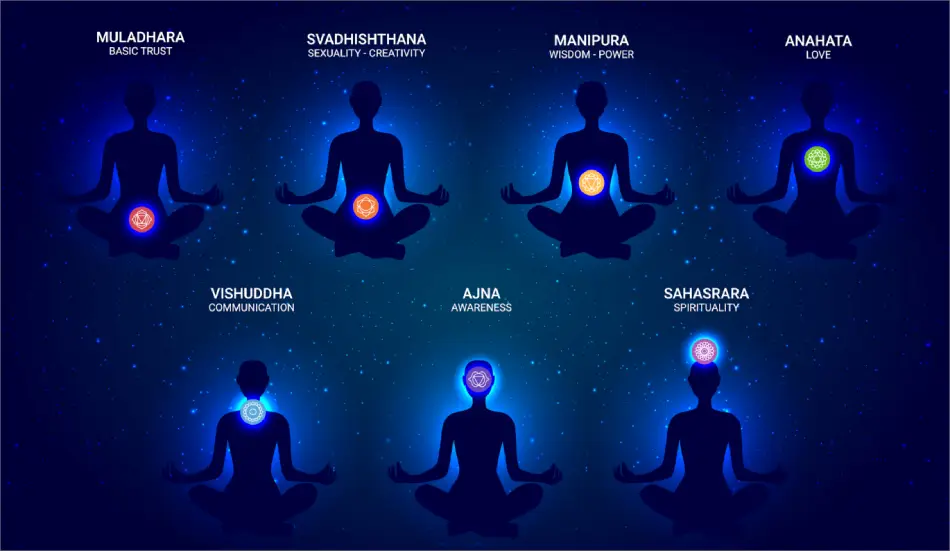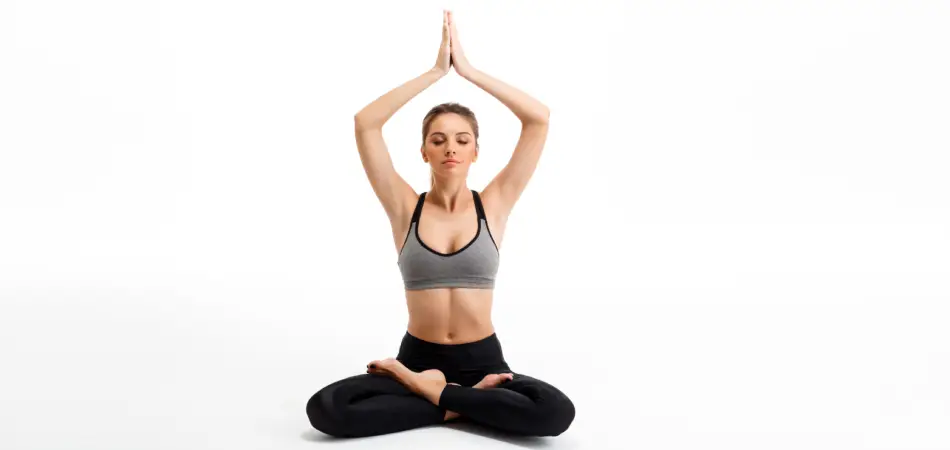
Get A Free Quote

Yoga, an ancient discipline originating from India, is a profound practice that transcends mere physical activity. It is a holistic approach to wellness, integrating physical postures, breathing techniques, meditation, and ethical principles. The word "yoga" itself derives from the Sanskrit root "yuj," meaning to join or to unite, symbolizing the unity of mind, body, and spirit. This unity is not only within oneself but also with the surrounding world and the universe at large, embodying a deep sense of harmony and interconnectedness.
The origins of yoga can be traced back over 5,000 years, with its first references found in ancient sacred texts like the Rig Veda. However, it was in the Upanishads and the Bhagavad Gita that the philosophical and spiritual framework of yoga was more fully developed. The Yoga Sutras of Patanjali, compiled around 2,000 years ago, systematically presented yoga as an eight-limbed path (Ashtanga Yoga), offering guidance on how to live a meaningful and purposeful life. These limbs encompass ethical standards, personal disciplines, physical postures (asanas), breath control (pranayama), sensory withdrawal, concentration, meditation, and ultimately, a state of bliss or enlightenment.
In the modern world, yoga has evolved and diversified into various styles and schools, from the physically intensive Ashtanga and Vinyasa flows to the more gentle and restorative practices of Hatha and Yin Yoga. Despite this diversity, the core essence of yoga — promoting balance, health, and strength yoga and inner peace — remains unchanged. Today, yoga is practiced globally, with millions of people incorporating it into their daily routines as a means to improve physical health, reduce stress, and find spiritual calm in the hectic pace of contemporary life.

The practice of yoga offers numerous benefits that extend well beyond improved flexibility and strength. It is a powerful tool for mental health, aiding in the management of stress, anxiety, and depression by fostering a sense of mindfulness and present-moment awareness. The meditative aspects of yoga encourage practitioners to delve inward, exploring the depths of their being and developing a profound sense of self-awareness and inner peace.
Physically, yoga serves as a comprehensive workout that can be adapted to suit individuals of all ages and fitness levels. It enhances cardiovascular health, promotes respiratory efficiency, boosts immunity, and can aid in weight management. Unlike many forms of exercise that emphasize rapid, high-intensity movements, yoga focuses on slow, deliberate actions that require concentration and mental resilience, providing a unique blend of physical exertion and mental relaxation.
Beyond its physical and mental health and benefits of yoga in everyday life, yoga fosters a sense of community and belonging. Whether practicing in a group class, with friends, or in the solitude of one's home, the shared experience of yoga creates a bond among practitioners. It transcends cultural and geographical boundaries, uniting people in their quest for health, happiness, and spiritual growth.
In essence, yoga is more than just a series of poses or an exercise routine; it is a way of life. It teaches balance, discipline, and compassion, guiding individuals toward a more harmonious existence with themselves, with others, and with the world around them. As we explore the benefits of incorporating yoga into daily life, it's important to remember that the journey of yoga is deeply personal and infinitely varied. It offers a path to transformation that is as unique as each practitioner, promising physical health, mental clarity, and a deeper connection to the essence of life itself.

One of the most apparent benefits of yoga is increased flexibility. If you've ever felt stiffness in your joints or found yourself struggling with low body mass, yoga can provide a gentle yet effective way to enhance your flexibility. The gradual stretching of yoga poses helps loosen and lengthen your muscles, improving your range of motion and reducing the risk of injury.

Yoga's impact on heart health is profound. Regular practice can lower inflammation in the body, a key contributor to heart disease. Yoga's calming effect also reduces stress levels, which improves cardiovascular health and is crucial since chronic stress can lead to high blood pressure and other heart-related issues. Poses like the downward dog can improve cardiovascular health by enhancing circulation and promoting relaxation.

Breath is life, and yoga places a significant emphasis on breathing techniques that can enhance lung capacity, calm the nervous system, maintain balance and improve overall well-being. These practices are not only beneficial during your yoga session but can also be applied in daily life situations to manage stress and anxiety.
Yoga doesn't just work your body; it challenges your brain too. Practices that require concentration and poses that defy our habitual movements can stimulate brain function, enhancing cognitive abilities and supporting overall brain health. Yoga involves many different postures where you have to twist your limbs over your own body, and they are known to bring balance to the brain and improve its functions to the fullest.
Practicing yoga daily releases synovial fluid that is released into the spine and this keeps the spine hydrated and strengthened at all times. During the evening this fluid is a little less in the spine so by doing yoga you can increase the production of this fluid. Yoga offers a respite for our spinal health, with poses that encourage flexibility and strength in the back, helping to prevent the degeneration of spinal disks.
Skin problems such as eczema and acne can sometimes be caused due to internal stress in the body. Yoga can help quite a bit in combating these problems and restoring your skin to its former glory. This happens because yoga gets internal organs in your body to circulate blood evenly all over your body. Proper blood circulation is not just good for the skin, but for overall health too.
Sometimes we feel very fidgety and jittery, this is due to stress which also harms our concentration. Yoga can help to rectify this problem to a great extent. Yogic meditation often requires one to stay locked in a single position for a long time and so you train your mind to focus on one particular thing for only a few minutes or very long time. Doing this regularly will help you increase your concentration level.

Did you know scientific research show that tense muscles, poor posture, and shallow breathing are caused by anxiety? However, thanks to yoga these can be taken care of. The yogic asanas are designed not only to strengthen the muscles but also to strengthen the mind and muscle connection, which helps to get rid of anxiety or at least keep it in check.
If you are overweight then you should resort to yoga as it is known to enhance your metabolism thereby training your body to burn calories faster. This will certainly help you shed all those extra kilos without resorting to harsh diet plans or grueling physical exercise and routines.
All you have to do is wake up every morning drink a cup of tea and start your day with Kapalabhati pranayama or Surya Namaskar, keep doing this for a few months and soon you will notice positive changes within yourself. You will notice the level of clarity that your thought process has then before you started your yoga classes.
It is a proven fact that yoga can help you give your cardiovascular system and immunity the boost that it requires. Yoga involves meditation, back bending, inverting, and twisting and all of these activities get into practicing yoga helps you to calm your body from the inside. What this does is reduce inflammation and stress from the inside and improve your immune system.
Are you under the impression that bodily strength only comes from pumping iron at the gym? Well, that is not completely true as yoga is known yoga's ability to strengthen every single muscle in your body through the various asana. These help to enhance the strength in integral part of your body and also boost an individual's health.
There are thousands of people who are yoga teacher can testify to this as yoga is known to increase the production of endorphins in our body that puts us in a good mood. There's a reason why people who practice yoga often seem to have a glow about them. Beyond the physical benefits, yoga encourages a positive mindset. Choosing the right yoga class and approaching your practice with sincerity can amplify these effects, leading to a happier, more fulfilled life.

One of the most valuable aspects of yoga is the increased body awareness it fosters. Through regular practice, you become more attuned to your own body's needs and signals, leading to healthier lifestyle choices and a deeper understanding of your physical and emotional state.
In the fast-paced modern world, stress management is more important than ever. Yoga offers effective tools for coping with stress, including breathing exercises, meditation, and physical postures that release tension and promote relaxation.
The benefits of yoga extend far beyond the mat. Regular yoga practitioners will often report improvements in various aspects of their lives, from better sleep and increased energy to improved relationships and a deeper sense of purpose.
For those seeking deep relaxation, yoga nidra, or yogic sleep, offers a pathway to profound calmness and rest. This ancient practice also induces a state of consciousness between waking and sleeping, providing incredible benefits for the mind and body.
Yoga contributes to a healthy heart by reducing blood pressure, lowering cholesterol levels, and improving blood flow and circulation. These benefits collectively reduce the risk of heart disease, one of the leading causes of death worldwide.
Yoga's holistic health benefits contribute to the prevention of chronic diseases such as diabetes, hypertension, and heart disease. Its ability to maintain a healthy balance in the body plays a key role in disease prevention.
Regular yoga practice can improve overall quality of life and potentially increase longevity. By fostering physical health, mental clarity, and emotional well-being, consistent yoga practice supports a life lived with vitality and purpose.
Incorporating yoga into your daily life emerges not merely as a practice but as a transformative journey towards holistic well-being. The multifaceted benefits of yoga span across the physical, mental, emotional, and spiritual realms, offering a comprehensive approach to health that is unparalleled. Physically, it strengthens the body, enhances flexibility, and promotes cardiovascular health, laying a foundation for a life filled with vitality. Mentally and emotionally, yoga serves as a sanctuary from the stresses and strains of modern life, reducing anxiety, enhancing mood, and fostering a state of mindful presence that enriches every moment.
The practice of yoga transcends the boundaries of simple exercise; it is a profound engagement with the essence of who we are. It teaches us to listen to our bodies, to calm our minds, and to connect with our inner selves in a deep and meaningful way. This connection extends outward, enhancing our relationships with others and with the natural world, and fostering a sense of community and interconnectedness.
As we stand on the cusp of this journey, it's essential to recognize that the path of yoga is one of personal exploration and discovery. Each pose, each breath, each moment of meditation is a step towards understanding ourselves and our place in the universe. Yoga offers a way to navigate the challenges of life with grace and resilience, to embrace joy and serenity, and to live with a profound sense of purpose and fulfillment.
In conclusion, the benefits of learning and practicing yoga in everyday life are immeasurable. It is an invitation to embark on a transformative journey that promises not only improved physical health but a deeper, more enriching experience of life itself. Whether you are seeking to enhance your physical fitness, to find peace and clarity, or to connect more deeply with your spiritual self, yoga offers a path that is open to all, rich with opportunities for growth, healing, and discovery.
No, you don't need to be flexible to start yoga. Yoga improves flexibility over time, so it's perfect for beginners.
Yes, yoga has been shown to help reduce symptoms of anxiety and depression due to its calming and grounding practices.
Regular practice is key to reaping yoga's benefits. Even a short daily practice can have a positive impact, with more significant results seen with increased frequency and duration.
While yoga alone may not lead to significant weight loss, it can be part of a healthy lifestyle that supports weight management.
Yes, yoga offers numerous benefits that can improve your overall health, including better sleep, reduced stress, improved mental health, and enhanced physical fitness.